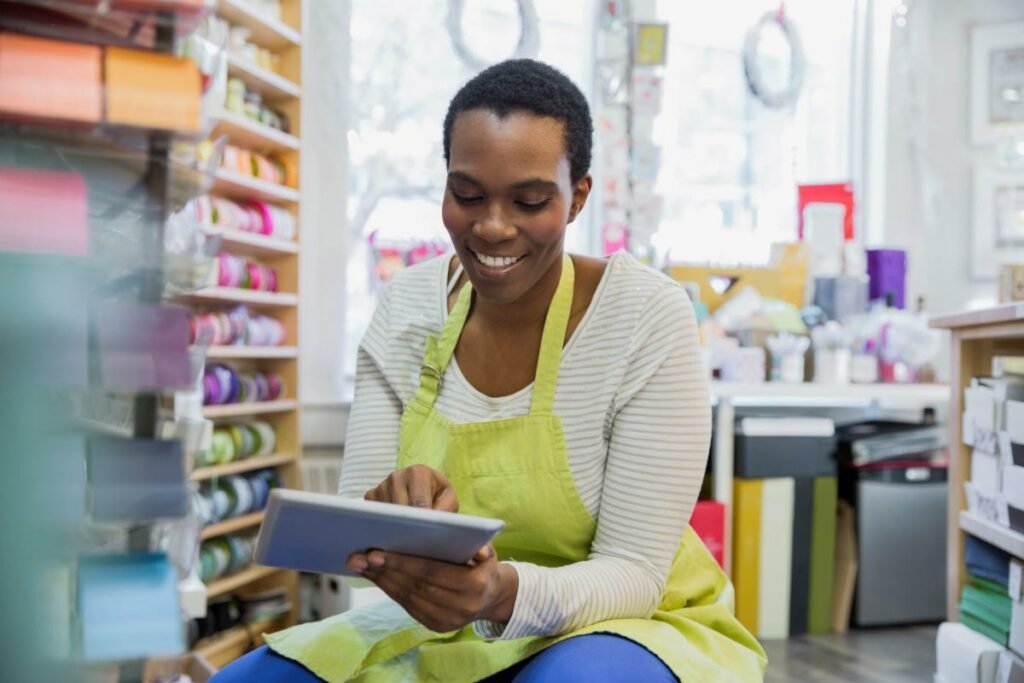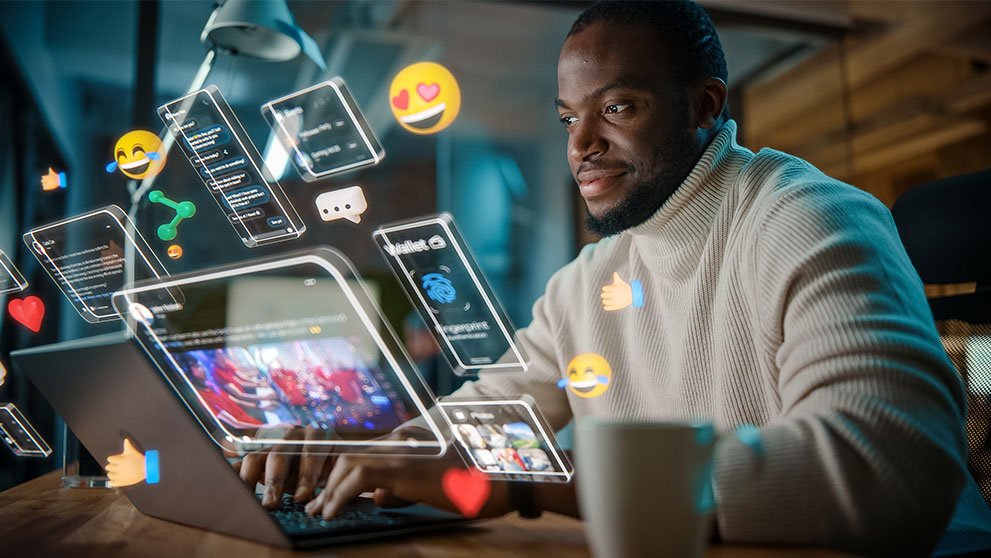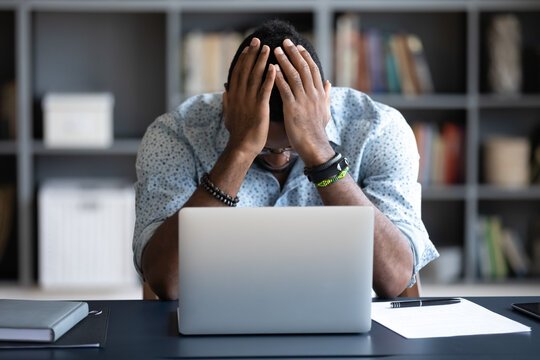Always Online, Rarely at Peace
It’s 4:36 PM on a Wednesday. Your phone buzzes with a WhatsApp message from a customer. An Instagram DM follows. You haven’t replied to that email from your supplier. Slack is still open. Notifications keep flooding in. And you can’t even remember when you last took a deep breath.
This is not just business. It’s how most Nigerians live today.
We wake up to screens. We eat while checking alerts. We scroll through the news between meetings. And we go to bed, replying, “Sorry, I’m just seeing this.”
It’s no surprise that more Nigerians are reporting fatigue, burnout, and mental exhaustion, even though they’ve “done nothing but press phone all day.”
Welcome to the age of digital noise.
But while technology has given us more access, more speed, and more connection, it’s also taken something away: clarity, calm, and control. That’s where the conversation around digital wellbeing begins.
What Is Digital Wellbeing?
Digital wellbeing is about maintaining a healthy relationship with technology.
It’s not about throwing away your phone or deleting all your apps. It’s about being in charge, not enslaved by your devices, your inbox, and your screen time.
It means being:
- Intentional about how and when you use tech
- Present when you’re offline with people or yourself
- Balanced between connection and boundaries
- Healthy mentally, emotionally, and physically, even in a digital world
The truth? Productivity without peace is a recipe for burnout. And more Nigerian professionals, creators, and entrepreneurs are realizing that.
Why This Conversation Matters in Nigeria Right Now
Nigeria is one of the most connected countries in Africa. According to NCC reports, we have over 222 million active mobile subscribers and more than 100 million internet users.
In Lagos, Abuja, Port Harcourt, and even smaller towns, remote work, online business, and digital marketing are now the norm. From fintech to e-commerce, every industry is online.
But here’s the issue: being connected doesn’t mean being productive.
- A marketer spends 10 hours on social media but delivers just one campaign
- A small business owner answers chats all day but forgets to eat
- A student attends four virtual classes but feels mentally drained and learns little
When our days are ruled by alerts, apps, and tabs, we’re not working smart. We’re reacting.
That’s why digital wellbeing is no longer a luxury, it’s a survival skill.
Real-Life Signs You’re Digitally Overloaded
Here are some things you might be experiencing:
- You can’t focus on one task for more than 10 minutes
- You open your phone for one thing and spend 30 minutes doing something else
- You check messages even while praying, eating, or talking to loved ones
- You feel guilty for not replying fast enough, even after working all day
- You sleep late because you’re “just checking something online.”
If this sounds familiar, you’re not alone. A growing number of Nigerians, especially among Gen Z, millennials, and working-class adults, are battling digital fatigue.
So What’s Driving This Overwhelm?
- 24/7 Availability Pressure
We’ve normalized being “online” at all times. Business owners feel they’ll lose customers if they don’t reply instantly. Friends expect feedback immediately. Even bosses now chat on WhatsApp at 10 PM. - Multitasking Madness
We believe switching between tabs, chats, and tasks makes us efficient. It doesn’t. Research from Harvard shows multitasking reduces productivity by up to 40%. - App Addiction
Apps are designed to hook you. Endless scrolling, autoplay videos, and colorful notifications are not innocent features; they’re built to steal your attention. - No Boundaries Between Work and Life
Remote work and social media have blurred the line between “on” and “off.” You’re checking messages during family time, replying to emails at midnight, or attending Zoom meetings in your pajamas, with no mental separation.
How Poor Digital Habits Affect Your Life
The cost isn’t just stress. It’s real and measurable.
- Mental burnout: Your brain is always processing alerts. No rest. No pause. Just noise.
- Reduced focus: Can’t read a full article or watch a video without distractions? That’s attention fragmentation.
- Lower creativity: Constant input means less time for reflection, imagination, or ideas.
- Strained relationships: How many arguments or silent treatments have started because “you didn’t reply”?
- Physical health: Poor posture, screen fatigue, and even headaches are part of digital overload.
The Nigerian Context: We’re Always on Our Phones
Whether it’s remote workers in Lekki, digital marketers in Yaba, or crypto traders in Abuja, many of us now live on our phones.
A recent survey from TechCabal showed that:
- 62% of urban Nigerians check their phones within 5 minutes of waking up
- 47% use more than 5 apps before 10 AM
- Only 12% actively schedule “no-screen” time during the day
We’re working harder, but we’re not necessarily doing better.
So, How Do You Reclaim Your Peace?
Let’s talk solutions. Digital wellbeing isn’t about perfection. It’s about small, intentional changes that bring big results.
1. Create Digital Boundaries
Start with time-based limits:
- Set a “no device” window: e.g., 9 PM – 7 AM
- Keep phones away during meals or personal time
- Let clients or colleagues know your available hours
You don’t owe the internet 24/7 access to your life.
2. Audit Your Notifications
Turn off non-essential alerts. You don’t need to know every time someone likes your post or forwards a video.
Apps like Digital Wellbeing (Android) or Screen Time (iOS) help track your usage and set daily limits.
3. Schedule “Deep Work” Sessions
Block 2–3 hours daily for focused, distraction-free work. Turn off data, close tabs, and put your phone on silent.
This is how real progress happens.
4. Use Technology that Supports You
Look for tools that simplify, not complicate, your life. For example, chat platforms like LuliChat allow you to manage messages from WhatsApp, Instagram, and your website in one place, reducing stress and saving time.
It’s not about avoiding tech, but choosing tech that respects your time and energy.
5. Build Offline Habits
Read a book. Take a walk. Journal. Cook. Have real conversations. Your brain needs non-digital stimulation to recharge.
What Businesses Must Understand
Digital wellbeing isn’t just personal, it’s professional.
Burned-out teams don’t perform well. Unfocused staff don’t innovate. And customers sense when your business is stressed, reactive, or inconsistent.
If you run a team or company, ask:
- Are we overloading staff with too many tools and alerts?
- Do we respect boundaries, or expect replies at midnight?
- Have we taught our team how to manage digital stress?
Investing in your team’s well-being is investing in your company’s future.
Reclaim Your Mind, One Choice at a Time
We can’t escape the digital world. And we shouldn’t try to.
Phones, apps, AI tools, and chat platforms like LuliChat have changed the way we live and work, for the better.
But to thrive, we must be intentional. We must choose peace over pressure, clarity over chaos, and purpose over performance.
You don’t need to unplug completely. You just need to take back control, one small decision at a time.
Remember: Productivity without peace is not success. Digital wellbeing is the new productivity.








